#racial slur tw
Text
Actually. I’ve sat and thought about the situation with that post for two seconds more and I’ve decided.
1) Everyone now on that post taking personal shots at me? Okay. Fine. Whatever. I’m more fucking mad about every idiot who falls into this genre (no, I’m not censoring their urls, they said this with their whole chest)



Fucking hell, can any of you get a life?? I know one of you is a literal n/azi (moron number one) so the answer is clearly no, but holy shit this is so. Pathetic. Clown goddamned behavior from the local Christian populace today. Choke.
2) I hope every Christian blogger who started this shit in my notes burns in hell. I wish the fucker who tried to drown me in a baptismal pool when I was young succeeded so at least I didn’t have to look at your rancid-ass takes. Get better priorities then “This dyke/fag injun tranny said something about sex that I disagree with using words I don’t, and refuse to, understand.”
#Whorephobia tw#Homophobia tw#Acephobia tw#Transphobia tw#Racial slur tw#I’m spitting goddamned mad right now#I have to read this bullshit because some people can’t pull their heads out of their asses#Shut the fuck up and go do whatever you do - I’m gonna be over here living and fucking my boyfriend nasty style. Rot where you stand.#Also tum/blr really needs to implement a thing where you can block blogs on sideblogs#As someone with a Jewish lover and who’s in the process of converting - that one fucker showing up in my notes gave me a heart attack
8 notes
·
View notes
Text

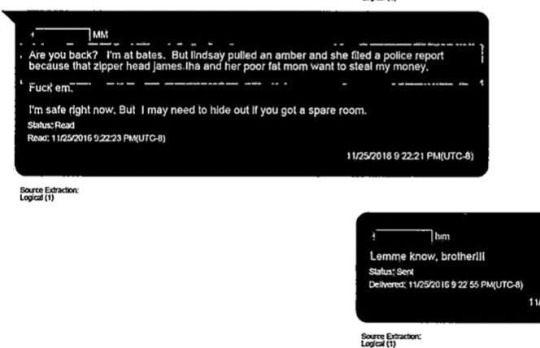
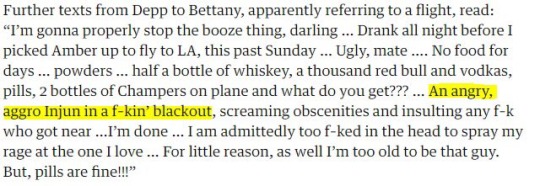
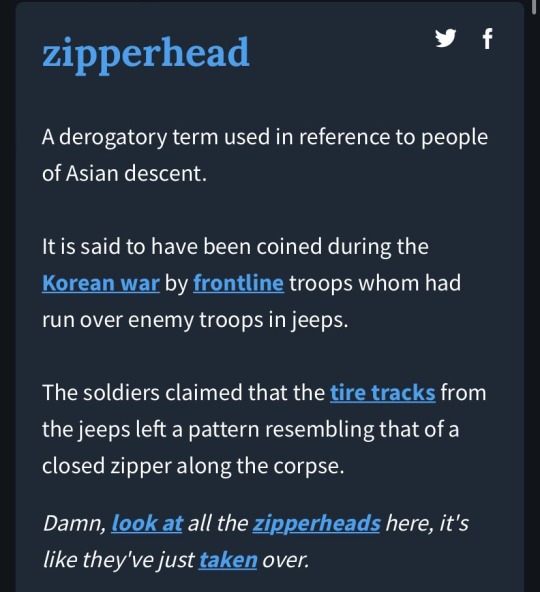

istg every information we learn about them is just ?? And ppl are rlly out here defending them smfh
28 notes
·
View notes
Text
So, I just came across a post about Welsh place names and how they’re disrespected by English people and/or English-speaking people, and I didn’t wanna muss it up with my own thing but it reminded me of something.
Disclaimer! I am not Welsh! I am supposing based on my own comparisons as someone from a country which also has a somewhat marginalized language that got supplanted by English (Aotearoa/New Zealand). I’d actually love for Welsh Tumblr to chip in and let me know if I’m right or not!
So, to put a long story short, I was hanging in a Twitch chat with a streamer I’m friends with, I think we might be mutuals on here - if so, hi! Don’t worry, I’m not all bitter or anything, this just reminded me. And we got to talking about folkloric creatures, particularly faerie myths from Scotland, Wales, and Ireland. There are a bunch of cool ones! But of course, names from Scottish, Welsh, and Irish folklore don’t always translate well into English-speakers’ parsing of spelling, because much like the Scottish, Welsh, and Irish themselves, their languages did not fare well when the English arrived. So occasionally I gave my fellows in chat and my streamer friend an explanation of how they were pronounced, and the one in particular this reminded me of was the name of the Hounds of Annun.
Or, in Welsh, Cŵn Annwn.
The ŵ in Cŵn is pronounced not unlike the oo in English “soon,” and the w in Annwn is pronounced not unlike the u in English “put,” as I recall off the top of my head.
Now, my streamer friend, because she is not Welsh and may not have known that there are no soft Cs in Welsh, pronounced that as Sŵn Annwn. Which isn’t correct - it is Cŵn, not Sŵn, which in fact means “noise.” We weren’t talking about some kind of noise associated with Annwn (the Underworld, roughly), we were talking about the Cŵn Annwn, the Hounds - Cŵn is literally just Welsh for “dogs.” So I let her know in the chat that it’s a hard C.
The attentive of you may notice that Cŵn sounds not unlike a certain American racial slur deriving from the word “raccoon.”
So a fellow chat member, whom I shall not call out or name or shame or whatever because actually they were well-meaning though off the mark in my opinion, that it was better to say Sŵn, because all three of us in this interaction are white and Cŵn sounds like a racial slur against black people.
Except, and this is where I get into personal opinion which could do with an actual Welsh person to either back up or correct me, Cŵn just isn’t that racial slur. It is a word. It is the Welsh word for “dogs,” the singular of which is ci*. And to claim that it should not be spoken by ninety-six percent of Welsh people because they are white is in my opinion a well-meaning attempt to not be offensive which actually wraps around like an integer overflow into being more offensive. Because the word Cŵn has zero relation to the American-originating racial slur “coon.” It is to suggest that the Welsh people should stop speaking their own language correctly because some people speaking another language (which is particularly offensive when that language is ENGLISH, which has already taken enough shits all over Welsh historically) on another continent stole a piece of a third language (Powhatan) to identify an animal and then rebracketed part of that stolen word to be a racial slur, and that slur happened to sound like a completely unrelated word in Welsh.
It is like suggesting that the name Whakatane should never be used correctly because “fuck” is a swear word in English (context for non-kiwis, wh in latinized Māori is kinda an f sound). It is not a swear word in Māori - it is the name of a town in the Bay of Plenty whose name commemorates an incident which happened after the arrival of one of the Polynesian voyaging canoes which arrived there, the Mataatua, specifically it’s part of what the chieftainess Wairaka said on that occasion. It is like suggesting that the entire Spanish-speaking world should stop using their word for the colour black because that word is used as a racial slur by others. Cŵn is not a racial slur in Welsh. It is the word for dogs. To suggest that white people shouldn’t say Cŵn is to argue that 96% of Welsh people shouldn’t describe their own pets correctly if they have a dog, or indeed, shouldn’t describe their own folklore correctly in the case of the Cŵn Annwn. And for a nation with the saying cenedl hab iaith, cenedl heb galon, “a nation without a language is a nation without a heart,” I reckon that suggestion would be rather offensive. You shouldn’t mangle Welsh because of something the English-speaking do wrong.
tl;dr In my opinion when you deliberately speak another language incorrectly in an attempt to not say a word that sounds like a slur in your own, you’re well-meaning but you’re looping around to being more offensive to the language you’re supposed to be speaking. Welsh folks please feel free to chip in and either whack me over the head for presuming or back me up.
* Or gi, chi, or nghi.
18 notes
·
View notes
Text
remembrance day seems like a good day to remember that in 1937 churchill rejected the arab wish to stop zionist jewish migration to palestine by saying:
I do not admit that the dog in the manger has the final right to the manger, though he may have lain there for a very long time I do not admit that right. I do not admit for instance that a great wrong has been done to the Red Indians of America or the black people of Australia. I do not admit that a wrong has been to those people by the fact that a stronger race, a higher-grade race or at any rate a more worldly-wise race, to put it that way, has come in and taken their place. I do not admit it. I do not think the Red Indians had any right to say, 'American continent belongs to us and we are not going to have any of these European settlers coming in here'. They had not the right, nor had they the power.
#fuck that guy ammarite#winston churchill#palestine#israel#history#racism#racial slurs tw#admin dominique
2K notes
·
View notes
Text

I just... how depraved can one be? I'm running out of words to describe these sadistic, vile, and dangerous racist zionists.
#feminist#feminism#social justice#free palestine#palestine#freepalastine🇵🇸#free gaza#settler violence#settler colonialism#current events#antiblackracism#antiblackness#white supremacy tw#tw racial violence#tw racial slurs#israel is a terrorist state#end the genocide#end the occupation
739 notes
·
View notes
Note
was your goal this round to get jimmy and cary out bc as a philadelphia story truther this is my joker origin story
i swear that was not the goal but oh no oops what's this doing here
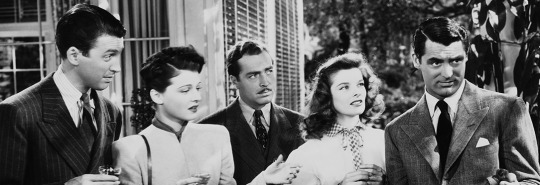
This is a poll on the characters—not the actors! If you haven't watched The Philadelphia Story, what are you doing here
#tw on the philadelphia story...there's a period racial slur (not directed at anyone in particular but still there) and a shove.#i think that's it? but go forward with caution if you have tws. I love you <3#minis#silly times#hotvintagepoll#the philadelphia story#asks
319 notes
·
View notes
Text

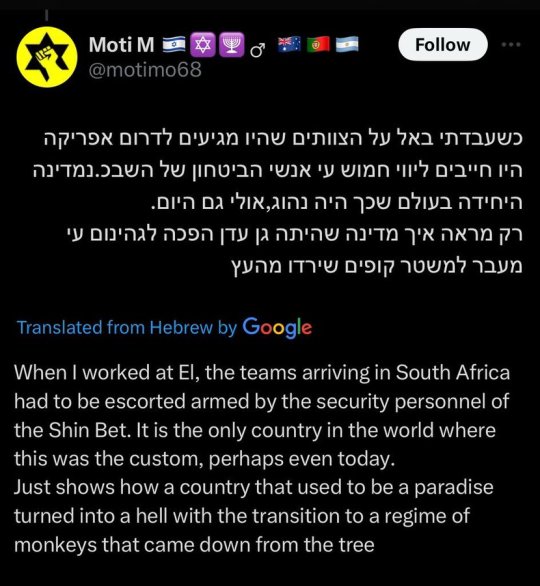
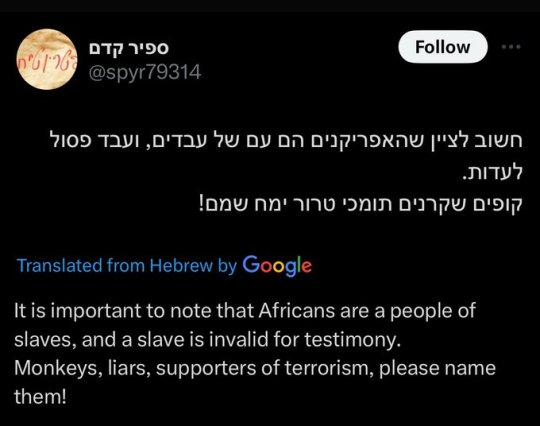
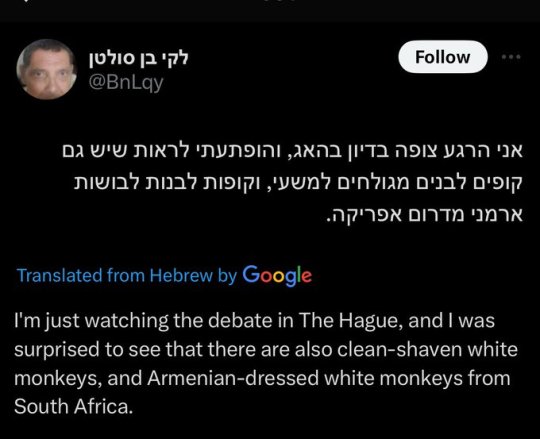
#yemen#jerusalem#tel aviv#current events#palestine#free palestine#gaza#free gaza#news on gaza#palestine news#news update#war news#war on gaza#south africa#racism#antiblackness#racial slurs tw#one day israeli twt will realise we can click translate on their tweets
186 notes
·
View notes
Text
I think what hbomberguy missed out on his video was the way James Somerton also dismissed ace people's oppression by claiming that they didn't 'go through conversion therapy' or apparently 'suffered as much as gay men'.
So here's a video I want to share by the Ace Couple going into depth about the whole thing and how James reacted when called out... spoilers, he didn't react well. I just hope by James' mistakes he and other people can learn something and grow.
youtube
#mentions of sa racial violence and acephobic + homophobic slurs in the video so be careful#they also go into depth about how they funded his movie projects and how they got fucked around basically#i think maybe hbomber missed this or maybe the video was too long already so no hate towards him at all#tw conversion therapy#tw aphobia#tw acephobia#lgbt+#lgbt#queer#asexual#tw harrassment#james somerton#hbomberguy#Youtube
48 notes
·
View notes
Note
Plural culture is being told that because my “canon“ source is not a Hispanic person (our body is mixed Hispanic/white) that I, as the host of our system, cannot claim our lived experienced as a mixed person.
.
#endos dni#osdd#did#pdid#did system#pdid system#osddid#actually did#traumagenic#actually dissociative#plural culture is#tw racial slurs#cw racism
23 notes
·
View notes
Text
It is really saddening to me seeing non-Australian viewers respond to Missy and Malakai’s characters on Heart Break High the way that they are.
The questioning of their skin colour and ethnicity is perpetuating really harmful public discourse that Aboriginal and Torres Strait Islander people face every day.
Please, if you’re not Australian and particularly if you only have a US-centric understanding of race and identity, please spend five minutes on google to educate yourself on Indigenous Australia before publicly articulating harmful and frankly racist ideas like questioning Missy and Malakai’s skin colour and whether they have “the right” to call themselves Blak (yes, Blak, google it), or “headcanoning Malakai as Latino”.
I will let Kuku-Yalanji, Waanyi, Gangalidda, Woppaburra, Bundjalung and Biripi man, Steven Oliver, explain why Australians, and in particular Indigenous Australians, are upset at the reactions to these two characters:

#Heart Break High#Heartbreak High#Please please please stop with the gross discourse about Malakai and Missy#tw: racial slurs#tw: racism#always was always will be#malakai mitchell#Missy Beckett
383 notes
·
View notes
Text
i swear to god just call it omegaverse instead of fucking AB* or a/b/* i'm begging. it's legit invasion day in australia i don't wanna be seeing no fucking racial slurs today.
140 notes
·
View notes
Text

me rn
#saw#saw 2004#leigh whannell#james wan#cary elwes#saw franchise#saw films#saw film#saw movie#saw movies#sawtism#sawposting#saw bts#saw commentary#cw slurs#tw racism#tw racial slurs#these tags dont look good :((((((#im stimming negatively right now
16 notes
·
View notes
Text
Cobra Kai 2.0
Something that struck me about the new Cobra Kai versus the Cobra Kai in the films -
Nearly every Cobra Kai member they focus on in the series is underprivileged. Hawk is disabled. Miguel is a poor boy whose family are immigrants. Tory is a fatherless poor caretaker of a sick mother and younger brother. Kenny is a poor black kid picked on by a bunch of rich white kids. Yes, there's Parker, but did he ever get his own episode? Aisha is a bullied black kid, though she's rich (which got her booted off the show).
The Miyagi Do's are the rich ones, the stable ones (no one we know of among them, other than Robby, has much hardship to overcome). Beautiful dojo and everything.
But that wasn't what the films were selling! The Cobra Kais were a group of mostly white preppy rich kids ganging up on one new poor kid, who, to some people in that Encino club, might still have counted as not-quite-white (if Aly was born around 1966, her parents will have been born around 1930-1940, and to those people, Daniel LaRusso would have been called a swarthy wop, guinea or dago by some people they grew up with, if they're too polite to use such language by 1983). Daniel definitely takes pains not to seem other to his environment even in 2018.
Sorry, but if your message is: "Cobra Kais are people too", why can't you simply try to win sympathy for preppy white kids? Why make Johnny into a blue collar worker? Nothing in his background suggests that. Why not make him a divorced, washed up, bankrupted investment banker? Why have Eli not simply be the vaguely Jewish kid who has trouble making friends? Really, if your whole raison d'être is "shitty rich kids are people too", why are you making it so that your protagonists are always fighting the rich kids? Who... aren't even shitty? Who did Samantha LaRusso ever hurt? And maybe there's Anthony, but he's barely in the show for three seasons.
Teaching poor kids to fight dirty because life can do you dirty is borderline justified. But The Karate Kid was about rich kids being taught to fight dirty and then taking all their advantages out on poor kids, because might makes right. Johnny, with his bike, and his preppy clothes, laughing at Daniel who has to sneak in through the kitchen to see his uptown girl. Chozen, the strong henchman to his insanely rich uncle, ganging up on the poor foreign boy. Terry Silver, making business deals with career fighter Mike Barnes. Humanise that all you like - but we also see what that looks like in the films, and that's Aly. The rich girl who really likes this new sweet kid, and doesn't care his mother is probably too outspoken for her parents' liking, and doesn't care her girlfriends don't much care for him. Aly, who is nothing but polite to Mr. Miyagi (compare that to Terry Silver's openly racist taunts), and only breaks up with Daniel when he jumps to conclusions (once about the class difference, another time when he was openly jealous about her talking to other guys). Show why, as taught by Johny, Cobra Kai 2.0 is good for those kids, or indeed show Johnny figuring out why it isn't and trying to make a change.
Because a poor kid learning "No Mercy" because they're trying to survive in a world that is trying to crush them is a very different setup than teaching a rich kid with all advantages in the world how to go around and pick on people, which is what Kreese was doing. The closest we get to that in the show is Hawk. It indeed isn't pretty and his redemption is entirely rushed, but even Eli, vaguely Jewish kid with a scarred face and trouble understanding social cues, had it much harder than, say, Tommy, who simply liked to win fights with his friends, if that meant nearly beating a young Newark boy to death after a school dance.
12 notes
·
View notes
Text
This is ventier than what I usually post but I'm just sooo irritated.
I was trying to explain how because I'm Jewish, I'm not white, and how that is directly because nazis (and other antisemites) view Jews as a separate race. They don't view me as such and want me dead because of it. And this one person had the full on audacity to go "yeah but treating being Jewish like it's a separate race is antisemitic". YEAH NO SHIT, I WONDER WHY THAT DIDNT STOP THE NAZIS FROM COMMITTING GENOCIDE AGAINST MY PEOPLE FOR BEING A DIFFERENT RACE!
This person was poc too, and could totally understand why someone who is mixed or is white passing has situational privileges but still experiences racism because they're not actually white, but suddenly not why that applies to me because I'm Ashkenazim and pale? My skin color doesn't make me immune to racialized antisemitism, especially since I'm *actively and visibly Jewish*. An antisemite isn't going to look at me and go, "Oh pale skin, must be white! Time to move to the next person." They're going to see my kippah and Magen David and go "Oh another kike to kill."
#original post#personal vent#jumblr#tw antisemitism#antisemitism#racialized antisemitism#shoah mention#genocide mention#k slur#reblogs/likes ok#but the minute someone clowns on this post you're getting blocked and reblogs are turning off
95 notes
·
View notes
Text
''MAMA'S BROWN BABY BEAR"
pairing: eventual harringrove. part 1
TW: Implied child abuse. Racism. Slurs implied but not used.
When Mama was around, Billy was allowed to embrace his identity. He was allowed to acknowledge his differences, and was able to find pride in his darker toned skin. He was his Mama's Brown Baby Bear.
She would scoop him into her arms, whispering into his ear as she tickled his sides, "repeat after me, Little Bear; I am strong. I am loved. I am an amazing young black man who will thrive."
Billy always struggled to repeat after his mother, he was only four, so he more often than not botched the words, but she beamed brightly and kissed his nose every time.
By age ten, the affirmations didn't stop, but they became less and less helpful. His father would make it a point to remind Billy he wasn't light enough, wasn't white enough to be his son.
It wasn't the worst his dad could dish out, Billy knew as much, but it still hurt. The punches hurt more than the words did technically, but the words left behind deeper scars.
What did hurt him was when his mother left him at twelve. It hurt when she stopped accepting his calls from the number she'd given him with the promise to always answer.
It hurt when his father would call him out of his name, would call him the same slur he called black people he'd see simply existing outside.
The word never sat right with Billy, not when it was directed at himself, or his mother, nor when it was aimed at a random person who happened to look like him.
When Susan came around, bringing her brat of a daughter with her, the boy was less than thrilled. After they moved in, things became more strained between Billy and his father.
Susan was nice enough, she smiled at Billy when he came home from classes with Max, she always gave him the corner piece when she'd make brownies. He doesn't remember telling her it was his favorite, but she seemed to know.
She wasn't his mother, she could never be, but she wasn't the worst. She wasn't as terrible as the other women his father dated before they'd met. She even sometimes patched Billy up when Neil lost his shit, going as far as to kiss the crown of his head before leaving him to stew in his feelings and aches.
Max was annoying, to put it lightly, she never stopped asking where his real mother was, why he was never with her. She bragged about how often she saw her father, while Billy couldn't even get his mother to answer the phone. Not that she knew that for a fact.
Neil now had his perfect white family. To him, Billy was just the darkness that invaded their light, casting them in a world of shame and general ugliness.
With his mom gone, Billy scrapped the daily words of encouragement, he largely stopped identifying with anything that could've tied him to the woman who swore to never leave his side. He wished he could rid himself of the skin that would give away his inability to ever truly fit in, but even with lightening creams and avoiding the sun, despite the beach once being his safe haven, he remained darker than his family members. He remained darker than society would ever grow to accept.
The boy was darker than his father, and by default, Susan and Max, but he was lighter than his mother, much lighter. If he didn't tan, he was light enough to pass as majority white.
Not enough for people to necessarily forget he was black, but enough that kids his age easily ignored that knowledge.
California was a mixed pot of races, so it wasn't a big deal that Billy looked different from the rest of his family. Everyone knew him, and his dad, so there was hardly ever an issue on that front. When you saw Billy Hargrove, you knew who his father was.
Hawkins was different. Everyone gawked at him, gossiping about the new black boy in town. They didn't realize his father was Neil, they didn't understand how Max was his sister or how Susan was his mom.
She wasn't his mom, but to the small town who knew nothing of their newest occupants, she was.
By month two, Billy had taken his place at the top of the social pyramid. Girls and guys alike were enthralled by the new kid.
He remembers in his first two weeks when a scrawny looking kid came up to him and asked him if he'd been adopted by a white family, and if that's why he was so dark compared to the little red-head they've seen him with.
What Billy doesn't remember is punching the boy in the face, doesn't remember shoving him to the ground with a snarl and some empty thing of a threat.
After that spread, nobody bothered to ask Billy any personal questions about his family and whether he belonged with them.
When Steve met Billy, the older boy instantly took to him, and vice versa. They became inseparable, always being seen together or with the other lingering nearby.
Steve's parents loved Billy, they remembered everything Steve told them about the younger boy and then some. They knew he was allergic to apples and pears, but would eat them anyway if he saw them, because he lacked self control or preservation, so they stopped buying the fruits altogether. They knew he startled easily from loud voices and stomping. They knew Billy apparently had a mean streak, a side to him that they've never been privy to. They've seen the aftermath of it all, the busted lips, black eyes, fractured ribs and admittedly much worse.
What they didn't see, what nobody saw, not even Steve, was the set of hands and work boots that brought one those wounds, some of which turned into scars. No one heard the repeated use of slurs aimed at the boy whose true smile could light the entire town alone.
One day, Billy had blond dreads, the same ones he rolled into Hawkins sporting, the next he had a buzz cut and bruised ribs to match. He tried to sell Steve a story about some asshole outside of town, but when the brunet asked Billy to explain the haircut, the boy had fallen silent.
Brown skin quickly shaded red, and before Steve knew what was happening, Billy was dissolving into a pool of tears, his breathing unsteady as he fought a round of hiccups. The taller of the two was unsure how to approach his best friend who sat in his living room crying, especially when he could hear the sound of his mother's car pulling into the driveway.
#billy hargrove#billy antis dni#billy hargrove deserved better#billy hargrove protection squad#harringrove#steve harrington#hargrove mayfield siblings#billy hargrove fanfiction#billy hargrove's mother#billy was mixed bc yes duh#mixed billy hargrove#mixed!billy#black!billy <3#black!billy hargrove#the Harringtons love billy#part 1#forced haircut#tw child abuse#tw racial slurs#tw racsim#eventual harringrove
62 notes
·
View notes
Text
Gueulemer as a "Créole"; Race in Les Misérables
When Gueulemer is first introduced to readers in Les Misérables, Hugo is quick to announce that the character was thought to be a “créole”; or “creole” in English translations of the text.
With this “creole” status, it is probable that Gueulemer is not a wholly white, European character— unlike the majority of the other figures that feature in the novel. This raises questions about his attributes and whether they reflect the racist stereotypes and opinions widely held by European society during the nineteenth-century.
Examining Gueulemer's characteristics within the context of race and racist "racial science" in the nineteenth-century contributes to important questions about racial stereotypes and prejudices in Les Misérables. As such, this character serves as a compelling case study to explore how the pervasive racism collectively integrated into European society at this time may have (knowingly or unknowingly) influenced certain aspects of the novel.
Below, I have attempted to analyse Gueulemer’s character traits within the relevant historical contexts to illustrate how his attributes likely originate from a series of racist stereotypes.
*Please be aware that the following post includes sources originating from the nineteenth-century that contain discriminatory and racist language. While I do not condone the use of such language, I have chosen not to alter the sources in order to present them accurately in their original form. All discriminatory language mentioned in the below post is written with quotation marks to highlight that these phrases appear directly in Les Misérables itself.*
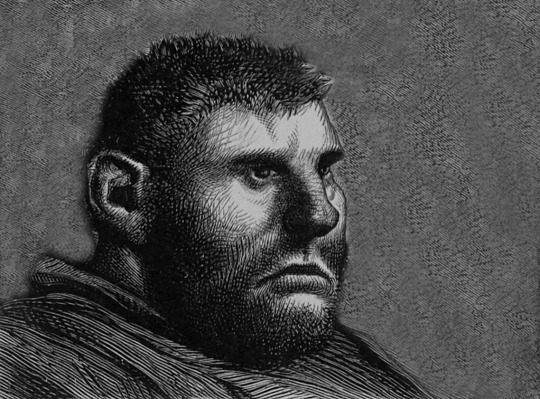
“Creole”; A Complex Term
It should first be noted that the term “creole” encompasses a wide range of different ethnic groups. In the footnotes of Julie Rose’s Les Misérables translation, “creole” is defined as “a European born in the tropics, usually in the Caribbean”. However, this definition overlooks many of the other groups that also were considered “creole”. Moreover, it conveniently ignores the fact that “creole” individuals are not necessarily white. In fact, during the eighteenth and nineteenth-centuries, “creole” people were often understood/stereotyped as mixed-race immigrants.
Many creoles were thought to be the offspring of the plaçage custom, wherein white men were permitted to form relationships with women of colour in French and Spanish slave colonies in North America and the Caribbean.
Thus, it is entirely plausible that Gueulemer is mixed-race. Although, it should be noted that Hugo writes that the character was "thought to be a creole”— it is never formally confirmed in the novel. Nonetheless, Gueulemer's physical appearance and personality traits align with numerous racist stereotypes of the time that were commonly held by white, European society towards black and mixed-race individuals.
With Hugo insinuating that Gueulemer is mixed-race and has Caribbean ancestry, he (intentionally or unintentionally) applies a set of preconceived racial notions onto the character. To put it another way— even if Gueulemer is not actually a “creole”, his appearance and personality align with society's racist preconceptions of how a “creole” looks and acts. This is a critical factor to consider when analysing Gueulemer's character in the context of racism and racial perceptions in the nineteenth-century.
The Stereotyped “Creole” Appearance
As previously mentioned, one of the most prominent stereotypes surrounding "creoles" was that they were mixed-race and that they possessed physical characteristics that differed from those of white Europeans. Not only did these include realistic differences such as darker skin and different hair textures, but also numerous stereotyped features that were rooted in racist ideology— which will be discussed further below.
Gueulemer, as originally described by Hugo, possesses many of these physical characteristics— thus indicating that he probably is a mixed-race “creole”:
Gueulemer, bâti de cette façon sculpturale, aurait pu dompter les monstres; il avait trouvé plus court d'en être un. Front bas, tempes larges, moins de quarante ans et la patte d'oie, le poil rude et court, la joue en brosse, une barbe sanglière; on voit d'ici l'homme. Ses muscles sollicitaient le travail, sa stupidité n'en voulait pas. C'était une grosse force paresseuse. Il était assassin par nonchalance. On le croyait créole.
[Built along such sculptural lines, Gueulemer could have broken monsters; he had found it easier to become one. With a low forehead, broad temples, a mass of crow’s-feet though not yet forty years old, wiry short hair, bushy cheeks, the beard of a wild boar- you can see the man from here. His muscles cried out for work, his stupidity wouldn’t hear of it. He was a huge lazy force. He was a killer out of nonchalance. He was thought to be a Creole. Julie Rose translation]
Identifiers such as Gueulemer’s “wiry short hair” arguably imply that he is mixed-race. However, it is the shape of Gueulemer's head that would have stood out most prominently as an indicator that the character has black ancestry to the novel's original readership. This can be realised by analysing the racist ideologies held within nineteenth-century Phrenology studies, wherein the shape of an individual’s skull is examined to determine their race and moral character.
Hugo makes a particular point to emphasise that Gueulemer has a low forehead, broad temples, and “the skull of a bird.” While some critics of Les Misérables have analysed the importance of this factor in relation to phrenological studies linking to criminality, the connection to racial phrenology has not been explored to the same extent.
Unfortunately, Gueulemer's head shape aligns with many of the discriminatory, racist stereotypes surrounding the appearance of black people in phrenological studies. An important aspect of Phrenology included the field’s ‘racial studies’, which emphasised the superiority of white, Europeans by comparing their skull shapes to the skull shapes of non-white individuals. In particular, it is the detail of the low forehead that was most prominently associated with multiple ethnic minority groups, including African and Caribbean natives, which supposedly “proved” their inferior minds and “primitive” personalities.
The below excerpt is from a Phrenology book published in the mid nineteenth-century, and it provides further evidence of the similarities between Gueulemer's head shape and the perceived shape of a black person's head in racist Phrenological studies. [source]

It is unclear whether Hugo intentionally or unconsciously aligned the physical appearance of Gueulemer's head shape with these discriminatory stereotypes, but regardless the connections are present and we should acknowledge the racist thought behind them.
The Stereotyped “Creole” personality
Phrenology as a study also fed into the idea that people with certain skull shapes had particular personalities and a pre-determined moral compass. One of the most prevalent phrenological stereotypes was that people with a low or sloping forehead were intellectually inferior and more likely to engage in criminal behaviour. The assumption was that a smaller forehead meant a less developed brain, and consequently, less mental capacity. This stereotype was again applied by white Europeans to individuals with ethnicities different from their own in an attempt to ‘Other’ them.
Unfortunately, Hugo perpetuates this stereotype also within certain parts of the narrative of Les Misérables. We only need to look at Gueulemer’s actions and introductory paragraph to see that he is clearly inferior to the other Patron-Minette members in everything but his brutish strength.
Although it is implied that Gueulemer played an active role in Marshal Brune’s assassination in 1815, for the most part he is explicitly described as being stupid and a “huge, lazy force”— with these characteristics being playing upon for comedic effect in various scenes in the novel. A notable example of this is when Gueulemer randomly takes his mask off and reveals his face to Valjean during the Gorbeau ambush, just so that he “could laugh”. Additionally, Gueulemer’s stupidity is comedically played off in a scene cut from the novel where the Amis and Patron-Minette meet. In this example, Gueulemer entirely misses the mark on the conversation and ends up stating the obvious in a few lines of dialogue after the facts had already been established by other characters:
“Who are you?” asked Enjolras.
A voice, in which a police agent could have recognized Babet’s rather proper accent, answered, “We are protestors like you.”
“Different from us,” said Combeferre.
[…]
“We are thieves,” cried another voice, that of Gueulemer.
It’s also interesting to pick up on Gueulemer’s general lack of dialogue in the novel compared to some of the other Patron-Minette members, which might even suggest that he is too simple-minded to speak eloquent French fully. In fact, this matter was once commonly felt by French “creole” immigrants, who were often perceived as being unintelligent because they did not speak French fully— but this was because the group tended to speak their own slightly altered version of the language. However, I can only speculate on there being any link here to Gueulemer’s unusual quietness in terms of his dialogue— regardless of the reasons why he does not often speak, he continues to appear as a dim-witted character.
Gueulemer’s stupidity is particularly emphasised with Hugo putting him in "stark contrast" to Babet, not only in physical appearance but also in intelligence, and making a note of it to his readers. The crucial point here being that Babet is described as a learned, ambitious, intelligent man and that he seems to be a white European. Therefore, Hugo inadvertently portrays the same racist ideals that Phrenology sought to demonstrate by comparing Europeans with other races to “prove” their superiority. Gueulemer even appears submissive to Babet, simply carrying out tasks that he wants him to do, he does not even seem to have any ambitions of his own— after all, he is described as being a “killer out of nonchalance” and we do not see him command any orders for the criminal group in the novel.
There is one final “creole” personality stereotype that I feel is relevant to this discussion. Many white Europeans perceived “creoles” (and in general a lot of ethnic minority groups) as being more immoral and prone to corruption. Of course, this stereotype is extremely important when we consider Gueulemer’s place as one of the four heads of the infamous Patron-Minette gang.
It doesn’t end with Gueulemer...
Gueulemer is not the only character of colour in Les Misérables. In fact, Gueulemer is one of three figures in the novel [to the best of my knowledge] who are described in ways that suggest they may not be white. The other two characters I refer to are Javert, who may have Romani heritage (described as “race bohème”), and Homère Hogu, a minor character who is explicitly labelled as black (referred to as a “n��gre”) and only appears once in the novel.
Unlike with Gueulemer and Javert, where their race is only implied and ultimately left up to speculation, Hugo's description of Homère Hogu explicitly identifies him by his race— and the character is reduced to a single, racist descriptor only: “nègre”. It is important to note that despite Hugo only using one word to describe this minor character— white European readers would immediately have been able to form a stereotyped idea of Homère Hogu's appearance and personality, thanks to the existing racist perceptions of the “nègre” phrase and character.
I find it significant to mention here how Homère Hogu, like Gueulemer, is also affiliated with the Patron-Minette. Thus, two of the very few non-white characters in the novel are portrayed as criminals (and let us not forget that in Javert's case there is still a criminal history present. After all, his mother gave birth to him in prison and his father was also locked up in the galleys). It should additionally be acknowledged that both Gueulemer and Homère Hogu are connected to African or Caribbean ancestry specifically. This differs from Javert, who is implied to have a different kind of heritage— being described with terms that suggest he has Romani blood. Hence, there is perhaps a necessity to closer examine nineteenth-century attitudes towards race and criminality specifically concerning black individuals, as well as all ethnic minority groups.
The racial labels and stereotypes applied to these two Patron-Minette characters can reveal a lot about the historical attitudes to ethnic minorities that were widely held by white, European society. Even if the stereotyped status of Gueulemer as a “creole” was unintentional on Hugo’s part, it identifies the existence of an unconscious form of cultural racism that pervaded society at the time the novel was written, and which unfortunately still persists today.
#gueulemer#homère hogu#patron minette#patron-minette#patron minette affiliates#les miserables#les mis#racial coding in les miserables#phrenology#historical analysis#les mis meta#les mis analysis#historical context#meta#tw racial slurs
51 notes
·
View notes